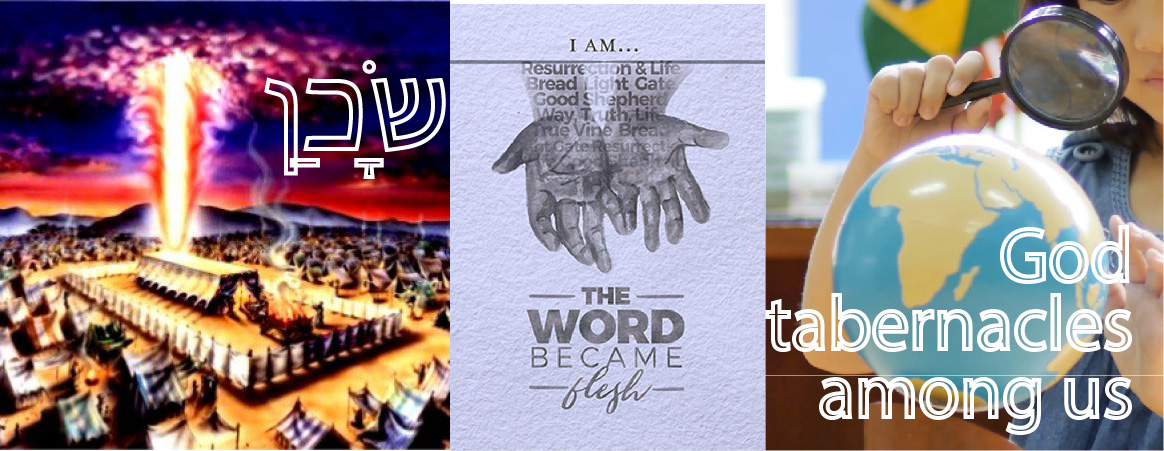
Where is God? It’s a question we ask today in the face of natural disasters, human-made massacres, cancer and other life-altering diseases, climate change and the chaos of daily life. It’s a question not just asked by skeptics but also by believers. We might wonder where God is in the midst of the massive change going around us, where our seemingly Christian world and society doesn’t seem to be Christian, or God doesn’t seem to be showing up in our need. Is God absent?; silent?; deaf to our cries? Or are we not listening?
Our texts today talk of the tabernacle, the tent of Meeting or Dwelling. It was the place of worship of the ancient Israelites. As they were delivered by God’s mighty hand from slavery in Egypt they were led in the desert by a pillar of fire and cloud to guide them day and night through the wilderness towards the promised land. In Exodus 40 this divine presence (the Shekhinah) moves in and resides among the people in the Tent of Meeting, commonly called the Tabernacle. The name Tabernacle, or dwelling place (מִשְׁכָּן Mishkan) comes from the Hebrew verb for to settle down, abide, or dwell (שָׁכַן shakan). The tent in the middle of the camp is where God chooses to dwell – in the middle of the people, in their neighborhood, in the center of their lives and living.
As they enter the Promised Land and later build the Temple in the city of Jerusalem that pillar presence, the glory of God moves and dwells among the people in the holy of holies of the Temple. But thee divided Kingdom of Israel and the Temple are later destroyed and exiled by the Assyrian Empire (722 bce) and Babylonian Empire (587 bce). The prophet Ezekiel shares a vision of the Shekhinah of God departing the Temple at the moment that they are defeated by their enemies. Did God abandon them?
Curiously the priests, prophets and scholars come to see that the Shekhinah didn’t abandon the people, but rather went with them in their exile as a homeless presence residing directly among the people. John 1 speaks of Jesus as the Word made flesh, who lived among us, or moved into our neighborhood. John uses the word tabernacle, literally saying that word made flesh tabernacled among us. Jesus is no longer physically among us, so what does that mean in terms of God’s presence – or Shekhinah – among us, in our problems and chaos, and in our world?
Questions for the practice of Examen & Contemplation
- What word, phrase or image grabs your attention?
- When have you most felt God’s presence? Least felt it?
- How do you understand God as present in today’s world?